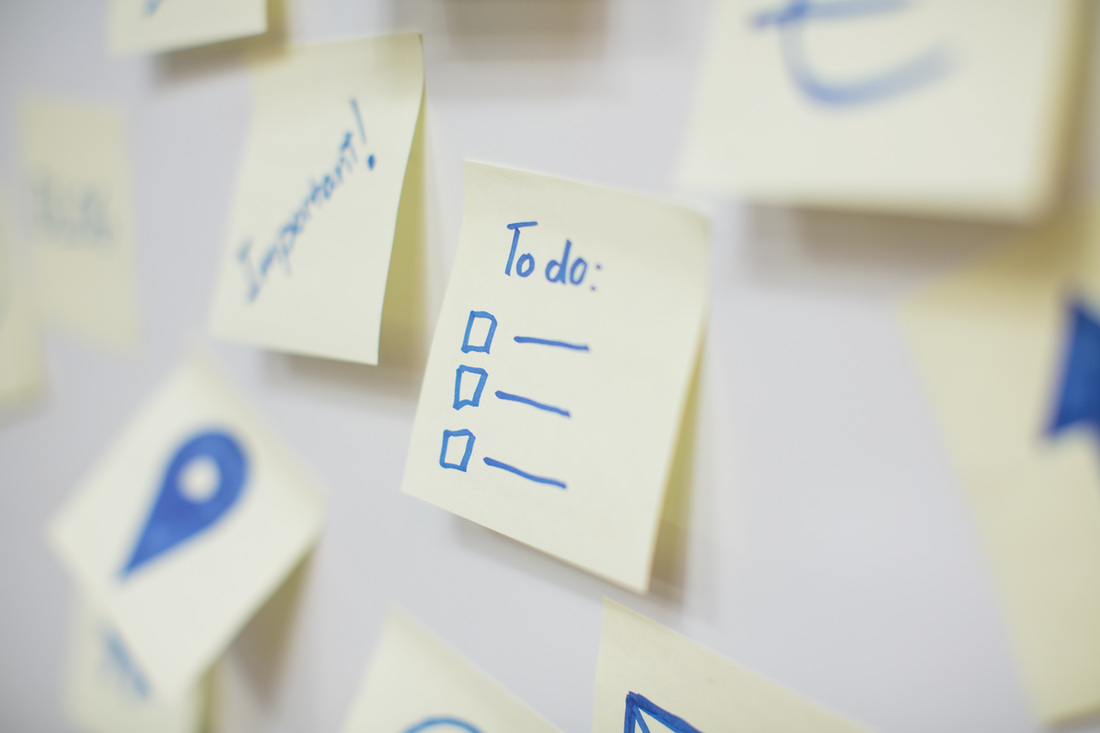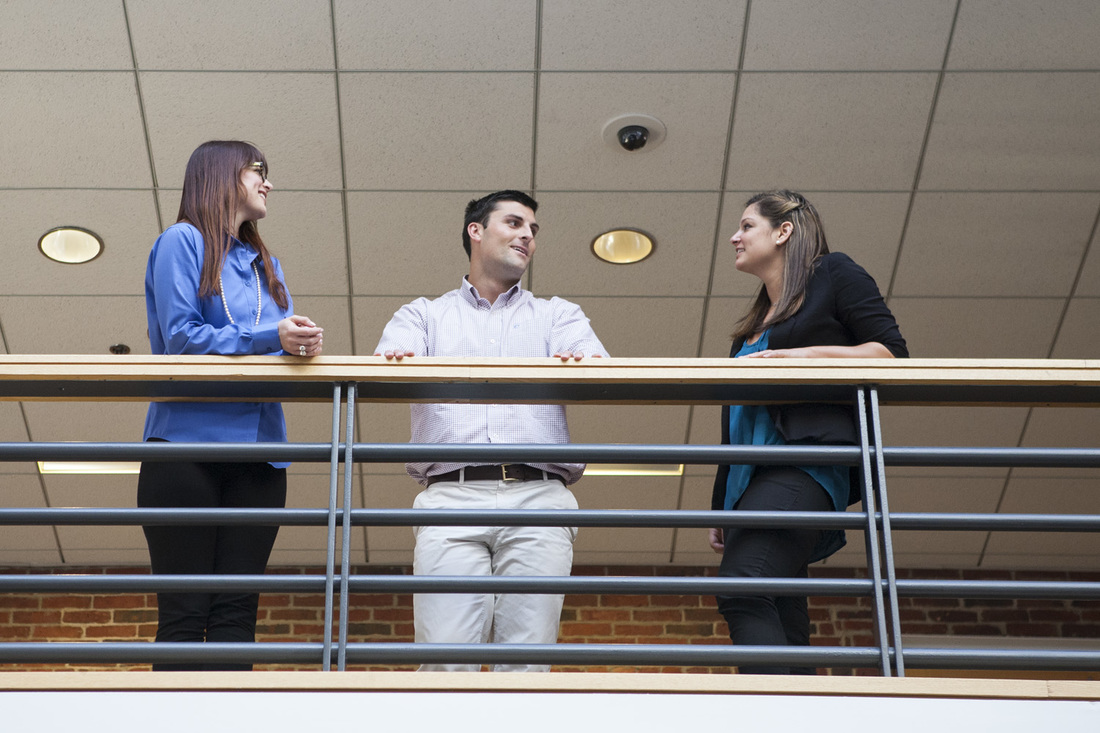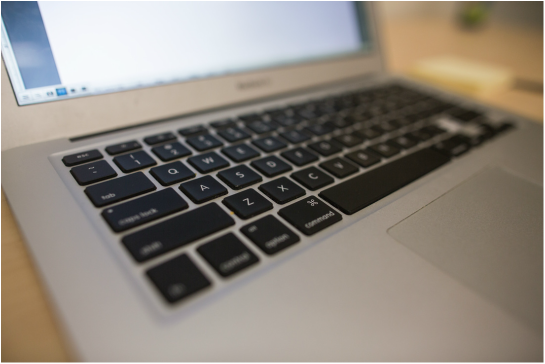|
I enjoy working out of coffee shops. Every now and then, I will accompany the husband to work and then proceed to a coffee shop in the area. On this day, I chose one that showed up on my Scoutmob app - Cafe Chocolat. I thought it would be a French Bistro but it turned out to be an Asian tea and fondue place. They open at noon but stay open late night for the dessert and after dinner crowd. I loved the ambience of the place, look at the pics. Also they were pretty skeletal crowd during the day so I was able to sit there all day long and focus on a bunch of writing work sans disturbance or noise. They have free wi-fi and very might music in the background. I had a hot chocolate, ginger tea and dessert while there and everything was delicious. I believe the fondue pots are their specialty though so will have to go back for that. Let me know if you happen to go here and what your work experience was like.
0 Comments
 How to Beat/Meet Deadlines How to Beat/Meet Deadlines There is a reason you have deadlines. If there wasn't one, you'd never be given a deadline or have to meet it. But that ain't how the world works. We'd be forever in pursuit. And that's okay, but for longer lifetime goals. Not for writing assignments. You and I would never make a penny. I try at all times to beat deadlines. Especially for stories or projects assigned to me. How? By working on the story right away. Of course, if you work in a newsroom or are on staff at a larger agency that goes without saying but if you work, like me, on many one-off projects or stories that have a longer lead time, for features magazines or maybe websites, then don't make the mistake, and I am talking from experience here, of keeping best things for last, or dashing for the red ribbon in the last second, or whatever fancy term you want to give for being plain simple careless and lethargic with your work. I mark my deadline at least 24 hours ahead on my calendar, and sometimes, depending on my experience working with a magazine or a certain 'type' of editor, I mark my deadline even a week in advance just to keep room for any last minute changes or edits or alterations, or, God forbid, additions, to my piece. When I am assigned work, I get on it right away. I also used to do the infamous fleeting glance at my mail and saying I was on it, then getting to 'it' days before deadline and finding out the attached files were wrong, or inaccessible, or not even attached. Guess how professional that makes me look. Yeah, pat on the back...NOT! Never came across an editor that reprimanded me for sending in my work earlier so I can't be doing it wrong. In fact, sometimes that has actually resulted in not just repeat work from the same client, but also last-minute stories that paid more (since they are rush jobs now because some other member of the team decided to drop the ball on it) and even referrals. So now I am not just making money, but making more money - from the same client and another. Who can complain? Try it the next time. Work backward from a deadline, give yourself the breathing space to beat it, allow for the time you need to turn around the piece, the time you will need for your research, speaking to sources, putting together your primary points, supporting facts, sourcing images, etc. and that will give you a clear idea of how far ahead you should begin. Which is now. Soon as you are assigned a project or story, go ahead and add it to your running work list, which I hope you have one of, because otherwise, I am not sure how you keep track of your ongoing jobs. Make sure you are looking at this work list very day when you begin and every evening when you call quits so you are constantly aware of the deadline coming through. If you are halfway through your roadmap and have not heard from resources, don't have the required quotes or the images sourced, then escalate to your editor or superior, senior editor, whoever will help, because they will appreciate an earlier red flag than a later one. Of course, this is your last resort after all other efforts on your part have failed. Sure, you don't want to look incompetent by having to ask your editor to step in, but beyond a point, it isn't about you any more. There is an issue that has to go live and your story needs to be in it, and your bills paid, so do what you have to, in order to get that story together. Try to set up consistent reminders and alerts on your calendar so you stay on track. You can also have your accountability partner, close friend or trusted professional acquaintance check in on you on set dates to ensure you are progressing as you should. If a change of scenario give you a sense of urgency then go ahead and work from a different location if that means your deadline will be met. If it turns out highly likely that you will not meet your deadline, the first inkling you have of it, give your editor a heads-up. They are nice people for the most part and want to help you if they can or must. They also have an issue to produce so seek help when you need it. Most are happy to know, some will offer an extension, some will offer assistance or advice or try connecting you to other sources but be fair to them and let them know well in advance. Worst case scenario, submit your work on deadline day and make sure to clarify up front what time on deadline day your work should be in. Again, from experience, I know that while you are thinking noon your editor is expecting your piece in her mail when she has her morning coffee, when you are thinking end of day your editor is expecting submission at noon. If you don't receive an assignment letter spelling it out, then the onus is on you to clear out any gaps that could lead to misunderstandings later. It is absolutely unprofessional and unacceptable to not meet a deadline, earlier or on time, and not communicate with your editor. It gives the rest of us a bad name so please, don't. Let them know when you will have your project done, and stick to that delayed deadline, even if you decide to gift it to yourself. If nothing else, you would have saved face, and maybe, the editor might try working with you again. Or you might just get paid, or not (uh-oh), and never work with them again, but recognize that this is your doing. So before that catastrophe hits you, go ahead and just submit on deadline and that way we will all be happy.  How to Stay Motivated at all Times How to Stay Motivated at all Times Staying motivated has never been much of an issue for me. I have always had sufficient work or ideas that I never seem to know what to say when folks ask me how I stay motivated. Of course, the reason they ask is because I am a full-time freelancer and for most people, the idea of working from home and away from other humans seems way too hard to fathom. When you are busy, that hardly seems an issue, especially when you are busy doing something you love and enjoy, and look forward to. I must say though that I do listen to myself and watch for signs. If I feel I need a break, I go ahead and take one rather than denying myself some rest and facing the adverse consequences later. If I need to zone out for a bit then I head out for a walk or watch/read something unrelated to my work for some time out. Here are a few suggestions that may or not work for you but have had some degree of success for me. 1. Clean up! And I don't just mean around you, although that could also apply. I am referring to your work files and folders, physical and virtual. If you know where to find what you want, you lose less time hunting it down. It usually is just small enough a break, and knowing that you completed something might give you enough impetus to work on your writing project. 2. Time yourself instead of giving yourself time. When I know I have the whole day ahead of me to work on a story, I take all day to complete it. But when I time myself and give a story only limited hours to be completed then I work faster and get everything done in shorter spans of time. Try it and let me know if it helps you. 3. Submit away. I used to be the person that tried allowing time every few days to submit ideas and pitches but invariably those times never rolled in as I would always put away that exercise for later. Now I just submit as and when a call comes through or I feel an idea brewing in my head. Just the excitement of that keeps me going. 4. Always a student. When you learn new information, it induces a new wave of possibilities irrespective of the subject or area. I like to constantly keep myself in that learning mode so I can polish my techniques and skills, pertaining to my profession of course. If I find a local class or networking group that would help I join it and learn what I can. If there are workshops or conferences in my city or industry that will help me be a better writer or editor then I sign up for those as well. 5. Motivational quotes are a no brainer. Especially if you are a writer or editor. It is important to be surrounded by positivity and affirmations when the environment you are working in is one of isolation. I enjoy reading Monday Motivation by the Renegade Writer, or anything by Marc and Angel and even Chris Guillebeau. And this last one might not work for all but sometimes it helps to not be working on a specific project for someone else but just on something you want that is not defined by a third party's requirements. For instance, that book of poems describing your childhood or the short story collection you want to submit to a contest someday. Those help keep you driven and challenged time and again. How do you stay motivated at all times?  How to Work a Media Meet and Greet How to Work a Media Meet and Greet What is a media meet and greet? Yes, I had that very question pop in my head the first time I heard that term. It is usually an event hosted by a company seeking media attention, or by the PR firm handling that company's or individual's publicity. The ones that I have attended have included media breakfasts, lunches, dinners, coffee chats, wine and appetizers, they run the gamut. Once you start covering diverse topics for your work or specialize in certain areas even, especially if you work closely on a beat, you will start finding these media events increase. In my scope of work I have attended media events for new companies launching, for author introductions, for new products hitting the market, etc. It is almost always a sit down style presentation type event or a mix and mingle affair. The invitation, typically from the company/individual's media representative or the PR company handling that account, gives you reasonable detail to know the type of event it will be. Some will include dress code as business formal or the fact that you can bring along a guest/suggest another member of the media to invite. When in doubt, feel free to reply to your inviter and ask whatever question you have. Better to have that clarified than turn up at the event feeling unprepared. A good pre-event strategy is to learn more about the 'why' of the event. If the invite had any additional information, be sure to read through and check for any clarifications you need. If you pitch stories then this gives you good information to send out feelers to a few editors. If you cover a specific beat then this gives you the initial information you need and you can have questions for the gaps that you'd like filled in. I also like to arrive a few minutes earlier so that gives me some time to get settled in, find my way in case I have never been to that specific venue before, have a word with the organizers, and maybe get to know a few other attendees as well. At sit down style events, once the organizer announces the event is to commence, folks sit down and the presentation begins. Questions are reserved for the close of the presentation and people typically converse with other guests at their table. Sometimes the seating is pre-arranged. At more free flowing events, there is usually no format but to walk around and introduce yourself to folks, make connections, get a few words in with the stars of the evening and move on. In either case, there are usually name tags involved so remember to write you first name in bold caps so that people can read easily and stick or pin it on your right shoulder. That is typically the hand people shake and looking at your name close to your face rather than halfway down your breasts is professional. Carrying plenty of business cards on you is imperative. You never know who you meet and how they might be able to help you later or vice versa. If food and drink are being served at the table then you have nothing to worry about. You eat what is served and thats that. If there are passed appetizers or a self-serve counter, don't feed yourself for the rest of the year from the food there! If beverages are involved then be careful to keep your clumsy side in check - the last thing you want is a spilled coffee on yourself or anybody else. If alcohol is involved, know your limits and don't make a fool of yourself at a professional event. Also do not be nasty to the serving staff, they are hosting an event and try to accommodate every request but they are human too and could be having a bad day. Always carry change on you even though you know food and drink at the event is complimentary. Your wait staff, drink pourer, table attendant, valet guy - all look forward to these events because it is their chance to make a little more than their hourly pay. I have made this mistake many times and felt like an idiot for it, so learn from my mistake - always have some change handy much as it is difficult to remember in this day and age where credit cards are the norm. Be friendly with the other guests at your table and don't shock them with your thoughts on gun control or procreation. You are meeting them for the first time in all probability - those topics are for after your fifth meeting or even later. A good conversation topic is something related to the event, the city, the venue, the work you do, etc. In an open format you just have to be brave enough to go around introducing yourself or ask the organizer to get you started with someone they know and then you can hang on to that person for dear life!...NOT! When the event is done, don't simply walk away. This is your time to leave a lasting impression so remember to thank the organizers, let them know if you have any follow-up questions, or how they can connect with you in the future. When you get back to work, remember to connect with everyone you met in one way or the other. I usually try to connect on Twitter/LinkedIn or both. If nothing else, I shoot them an email so that way they have my information and it shows that I took initiative to connect. If you do end up writing about the product, event, individual, concept or whatever it is that the event is for, then always send your organizers a link or copy of that coverage. They will be ever so thankful - they are busy people and while it is their job to track all their media, a little help goes a long way in their good books, and who knows when it helps to be a name on that book! What is your strategy to work a media meet and greet?  How to work out of a coffee shop How to work out of a coffee shop You'd think that was pretty simple to do but not many freelancers know how to work out of a coffee shop. Many, usually introverts, are afraid to step out of the comfort of their home to a space so public as a coffee shop. Of course, the economics of it can be equally intimidating just as well but there is an admitted good vibe, cosmic energy, call it what you will that a coffee shop can infuse into your work. For instance, working out of a coffee shop right now has me writing this blog post for you. Working out of a coffee shop today was a necessity - there was some maintenance work to be done in my apartment which meant my usual space of quiet work would be invaded by repair men and their tools cluttering my work space so I chose to work from an outdoor space. My local coffee shop of choice is Starbucks. I am spoilt for choice - I have at least 10 locations within a few minutes of where I live but over a period of time, through much trial and error, I have found the one location that is not too busy for my liking, to be able to get some productive work accomplished, without being disturbed by others' loud conversing or general people watching, which happens to be one of my top ten skills :) So much as this might take some fine-tuning, find yourself the perfect neighborhood coffee shop that suits your work style. Also PS - I do have a Starbucks rewards card that gets me all kindsa great deals and I reload using a Chase Sapphire card which gives me 2x the points Once there though dont be the hated coffee shop camper that invites the wrath of the staff employed there. Be good, be nice, be kind. Don't simply order a free cup of water and hide at the table at the very back so they cant see how long you have taken over their venue. Order something to show that you support the business that helps you with yours. You are using their space, their electricity, their restroom, their resources - wifi, lights, furniture, so dont be surprised if your coffee visit ends up leaving you $10 poorer. If this is a regular spot for you then learn the names of the staff there and engage in some neighborly chit chat when time permits. They are the nicest people once they get to know you. They will make you the 'usual' once they see you and be happy to swing by and drop off some water or clear stuff from your table. If it helps you can try to only do coffee shop days when you have to absolutely focus on a story, or positively need a change of place, or have maybe client meetings that you can do there and that justifies being in a coffee shop for a few hours. I do at least one coffee shop work day and end up spending for coffee and a pastry, sometimes more if I stay there from breakfast until past lunch or even tea time. Of course, if you have a freelancing business then do keep the receipts safe and use them at tax time for deductions. I do try to go in with a fully charged laptop and phone so I can work for at least 5-6 hours without having to take over the few plug points in the public space I am sharing. I also try to see if I can find a couch or a standing table top where I can occupy lesser space. Sitting at a table permits spreading your bag, papers, stuff in general all over the place and just taking up way too much space than polite society would consider acceptable. Take along your headphones or earphones if you need to block out external noise. By the same rule, don't have your loudest business call in a coffee shop. Make sure you can speak in a voice level that is not disturbing others, take calls in your car or outside if you can or reschedule for later. You have ordered food and drink so remember to not be a clumsy clown when you consume your food or beverage of choice. And certainly do not swear out loud when you end up being the one dropping hot liquids on your own laptop! An overly animated freelancer is not welcome either. You are there to get your work done. So get your work done and dont go around trying to make random conversation with all and sundry. And when you are done and ready to leave, remember to clear up after yourself. Keep in mind at all times that you are in a public space so if your work requires you watch a video of gory detail for your research, you might not want to do that on your large screen laptop with full volume on! You also do not want to carry out banking transactions and such in a space like this, you never know who can view the details on your screen. Using a protector might help to some extent but that is also a personal choice. Last but not least, leave the location a nice review online somewhere if they were helpful to your work day. Most of them have their preferred review site online so a few kind words and a few minutes out of your day would be a welcome return for their services. If some staff member was especially helpful then remember to mention them as well. I remember to do this if I have tried a new place or maybe an indie store that could use the positive feedback. Over time, you can let friends, colleagues, clients know where to meet you if they want to discus work. You also never know but sometimes story ideas come to you at coffee shops. Check out their message boards or even observing people coming in might spark a story idea in your freelancer head! What do you enjoy most about working out of a coffee shop? |
Categories
All
Archives
March 2023
|
